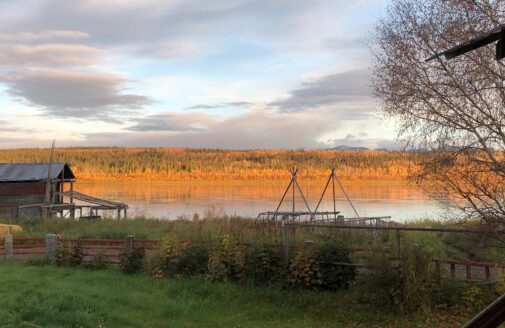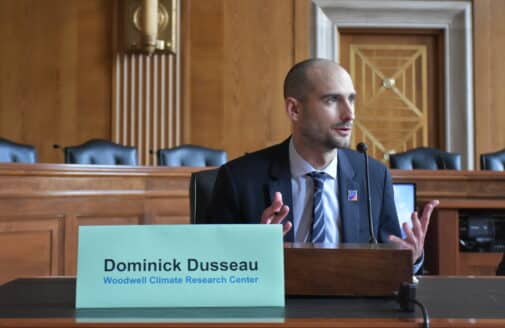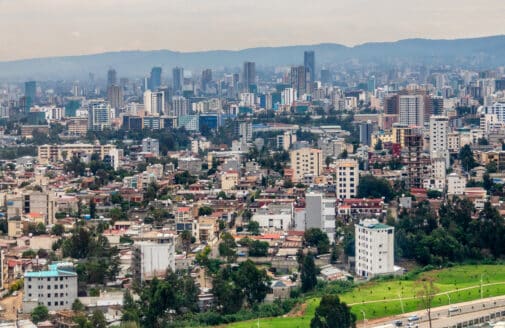This is our moment

This fall’s climate extremes—including wildfires in the western US and hurricanes in the North Atlantic—drive home that climate change is here, is disruptive, and is not going away. When George Woodwell testified in the US Senate in 1986, climate change consequences like increased wildfire activity were purely hypothetical. In 1995, when the Intergovernmental Panel on Climate change found that “the balance of evidence suggests a discernible human influence on global climate,” a careful statistical analysis was necessary to reveal a human influence in meteorological observations. Now, in 2020, the consequences of climate change are not only obvious, but are becoming severely disruptive and are affecting people economically and psychologically. And, as I recently said in public, this is not the new normal—it will continue to get worse.
It is disastrous and outrageous that decades of warnings by scientists have been systematically ignored. It is inexcusable that even now, high government officials continue to question a human role in the events which are beginning to transform our planet and our lives [1].
These recent events make it clear that we should not be asking ‘can we afford to stop climate change,’ but ‘can we afford NOT to stop climate change.’ And they may help drive home the importance and urgency of the work we do here at Woodwell Climate Research Center. Even with all of the other weighty events in the news these days, people seem more focused than ever on the dangers of climate change. Furthermore, social science research shows that climate related extreme events are more effective than anything else in getting people to recognize the reality and seriousness of climate change. Now is a powerful moment to talk about our work and its value—while people are focused on climate change.
Given that climate change is hitting us over the head, and given that we all know that the #1 thing we need to do is to reduce greenhouse gas emissions to the atmosphere, it is logical for folks to ask ‘Why do we need more climate science?’ Here are a few examples of the continued need for climate science and what we are doing to meet it:
- Much of our work at Woodwell Climate is, in fact, about reducing greenhouse gas emissions. A key focus of the Tropics program, for example, is reducing emissions from deforestation in the Amazon and Congo Basins.
- “You can’t manage what you can’t measure.” Work at Woodwell Climate focuses on making better measurements of carbon as it moves into and out of the atmosphere. This is foundational to managing these movements of carbon, a critical step in managing climate change.
- We also work to advance ‘Natural Climate Solutions’ (NCS)—using management of forests, wetlands, etc. to remove CO2 from the atmosphere. This acts to reverse climate change and is essential to limiting global warming to an acceptable level. We continue to be leaders in this space, with two of our scientists recently co-authoring an important new paper in Nature.
- A warming Arctic, on the other hand, makes climate change worse by emitting greenhouse gases from thawing permafrost and wildfire. That makes the hill we have to climb to control climate change much higher. Our work aims to understand how much higher, and to communicate that to policy makers. Without this understanding, we risk working hard to implement climate policies which are insufficient to meet the challenge.
- If it weren’t obvious already, recent fires in the western US prove that we are going to need to figure out how to cope with consequences of climate change. This is much less expensive and disruptive if we actively prepare rather than merely reacting post-disaster. Our Risk Program informs that paradigm shift by making quantitative projections of risk from important climate-related perils—fire, flood, hurricanes, and so on.
Despite everything else which is clamoring for our attention, climate change remains the most important challenge of this century. And it is urgent, because the longer we delay the less likely more benign outcomes become. The coming decade will be pivotal in terms of determining our future. We have a lot to do, and not much time. Thanks as always for your interest and support.







